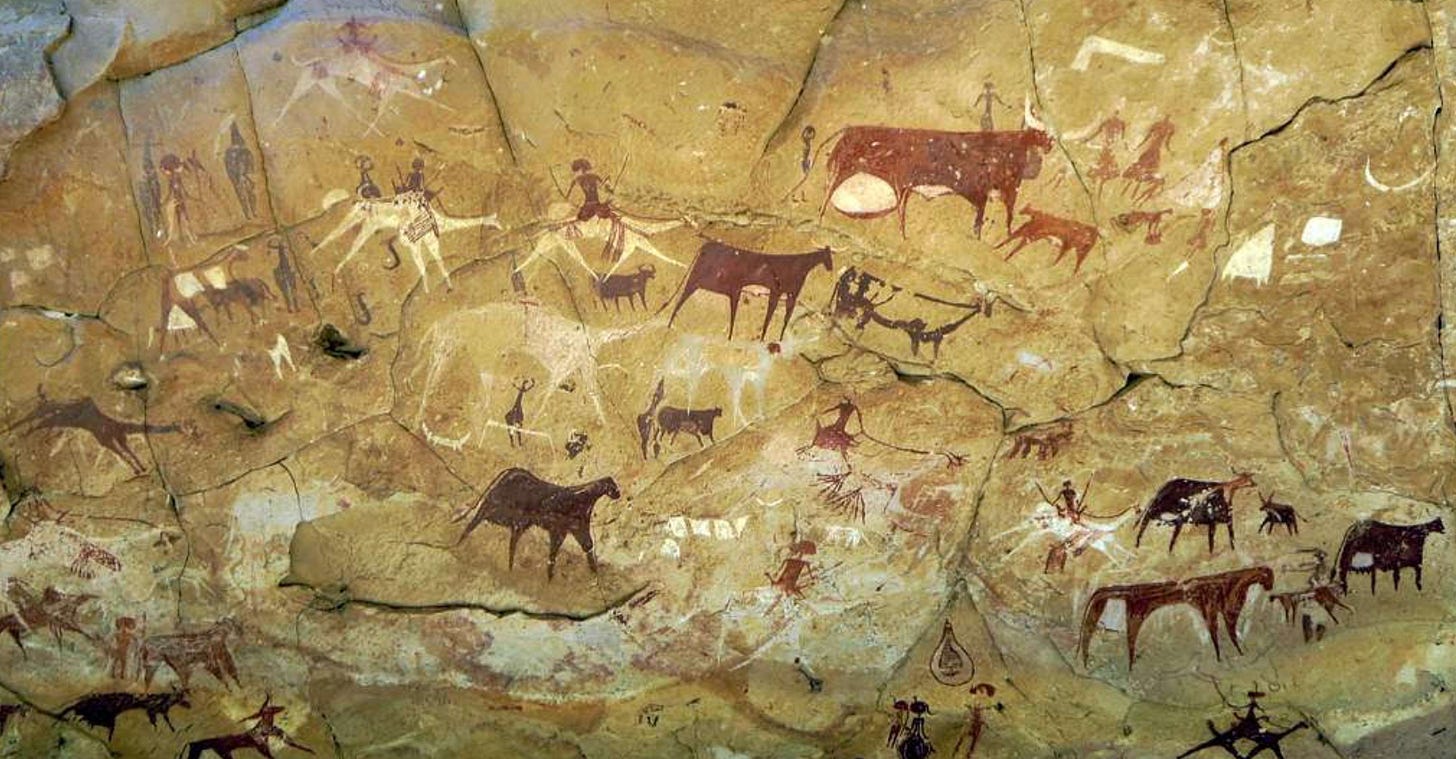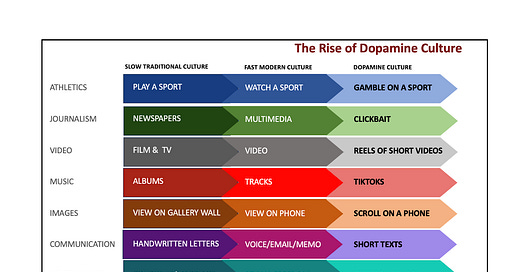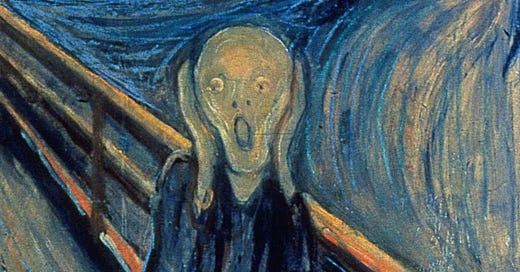
In ancient times, you attained immortality by doing great deeds.
Today you attain immortality by getting blood transfusions from teenagers, and freezing your body for later revival.
Needless to say, there’s a huge difference between these two strategies.
If you want to support my work, please take out a premium subscription (for just $6 per month).
In the first case, you serve others by your great deeds—eternal renown is your reward for this. But folks seeking immortality today are the exact opposite. They have reached peak narcissism—other people are, for them, literally just a source of fresh blood (or stem cells).
Until recently, I thought those Dracula movies were just a story to scare little kids. I now know that they’re an actual playbook for Silicon Valley elites.
With a better business plan, our Transylvanian count could have raised some serious VC money.
Not long ago, I would have thought that the tweet below was a joke. But not in the current moment.
By the way, don’t miss the motto on his shirt.
I’m tempted to make some joke about this—but we’ve now arrived at a point where reality itself morphs into dark comedy. No punchline is necessary
And here’s another similarity between tech billionaires and the monsters in old horror movies. Somebody recently sent me a link to a website that sells bunkers to tech elites, and they remind me of dungeons in a Frankenstein film.
Go ahead, click on the link. Don’t let me stop you.
In both instances, horror is the right term.
Just looking at these things and imagining some delusional transhumanist getting on the table in his dungeon for a rejuvenation procedure is very creepy.
But there are some similarities between ancient heroes doing great deeds, and today’s Silicon Valley transhumanist. They both want to be like the gods (only their methods are different). Also, they are both admired leaders in their respective societies.
That’s the part that troubles me most. If the dude slurping up stem sells in a bunker was just another crazy person, I wouldn’t worry about it. But, unfortunately, these unhinged narcissists include some of the most powerful people on the planet.
We should all be concerned about that.
Bryan Johnson, who shared the above tweet, spends $2 million per year on body rejuvenation. He’s now getting fountain-of-youth injections (not approved by the FDA) that cost $25,000 per shot.
Oh, and I forgot to mention….He dreams about running for president of the United States.
If that doesn’t work, he will settle for owning his own nation-state.
This is now comedy and horror and reality TV all combined.
Ah, I wish it were just that—a creepy show on Netflix. But these same oddballs are also obsessed with becoming our leaders.
If they succeed, each of us can be part of the cast in the ongoing horror-comedy show.
Let’s turn now to Shakespeare, and see how he views immortality.
This is real wisdom, my friends. And we need a dose of it after what we’ve seen above.
Shakespeare writes about immortality often—especially in his sonnets—and no plasma is required. Take, for example, the most famous sonnet of them all. I’m talking about Sonnet 18, the one that begins:
Shall I compare thee to a summer’s day?
It’s a lovely idea, but there’s one problem with summer. Despite what the Beach Boys promised, it isn’t endless. Eventually summer comes to an close, as does everything humans love. Sooner or later, you have to go back to school, because—as Shakespeare warns:
Summer’s lease hath all too short a date.
But Shakespeare sees a way to escape this, a truly endless summer. He describes it in the final six lines of his sonnet:
But thy eternal summer shall not fade,
Nor lose possession of that fair thou ow’st,
Nor shall death brag thou wander’st in his shade,
When in eternal lines to time thou grow’st,
So long as men can breathe, or eyes can see,
So long lives this, and this gives life to thee.
This is an amazing boast—even greater than anything Mark Zuckerberg or Elon Musk can deliver. Shakespeare will ensure that his lover lives forever, because she is immortalized in his poem.
And he’s not exaggerating. He actually made it happen.
That poem will live longer than any Silicon Valley transhumanist.

Other artists have made similar boasts, and a few have actually delivered on them. That’s why philosopher Hannah Arendt claims that only works of art, among all human creations, give us a “premonition of immortality.”
This is the immortality that only art can grant. And it’s more awe-inspiring than a $25,000 injection or a dungeon bunker in Maui.
Sometimes this immortality of art happens in surprising ways. I recently watched the TV miniseries Capote Vs. The Swans—and it documents author Truman Capote’s shameful betrayal of his closest friends.
He took their secret scandals—told to him in private—and used them as plot points in his unfinished ‘gossip novel’ Answered Prayers.
I condemn what Capote did. But this miniseries makes something clear to me I’d missed before.
Babe Paley and the other friends he betrayed, come across as more positive and endearing figures than Capote himself in this miniseries—they now seem heroic compared to him. And they have been effectively immortalized by the way their lives intertwined with his, despite all his bad intentions.
They will still be remembered a hundred years from now—and recalled sympathetically—because of Capote’s artistry, which will prove more durable than his friendship or betrayals.
This is more common than most people realize. One of my musician friends spent a lot of time with Jack Kerouac back in the 1950s. My buddy ended up as a character in Kerouac’s novel Big Sur, and even got portrayed in a movie adaptation. I have other friends and acquaintances who also became characters in Hollywood biopics.
This is what art does. Even at secondhand.
If you’ve crossed paths with a great artist, some of that immortality might even rub off on you.
That’s a different way of surviving—and one that no tech bro can match by getting injections of teenager blood or gulping down 100 nutritional supplements per day.
It’s useful to remind ourselves of this genuine immortality of art and of the great deeds praised by the ancients—especially in an age that worships tech and marginalizes all other pursuits.
And it’s especially wise to do this, given how tech actually focuses so much on the ephemeral nowadays—all that scrolling and swiping ‘content’ that only lasts a few days, or less.
What these platforms deliver is the exact opposite of immortality. The empires of TikTok and Instagram and hundreds of other apps are built on the flimsiest of foundations—a few seconds of streaming data.
So it’s ironic that the people who promote this vapidity are seeking immortality for themselves. I doubt they will find it. But they do have good reason to fear transience and oblivion—because that’s what they’ve staked their whole careers on.
Fortunately we don’t have to play along. For my part, I have no grand plans to cheat the grim reaper, like our narcissistic tech titans. But I enjoy contemplating those cultural and sacred works that have actually achieved immortality.
That’s culture that even a smartphone can’t swipe away, and we ought to prize it all the more for that very fact.


















People who obsess about remaining eternally alive are in a state of permanent fear and only consume without any output - they are already dead. Only the living can give of their flame of vitality to create art and culture that will leave a lasting legacy.
I've never really understood what the transhumanists think they can make immortal. As far as I can tell we only exist interdependently, in relation to one another and the planet -- and beyond that, the universe. There is no separate, inherently existing self that you can actually find. What we actually are in being interdependent is beyond the ability of words to express (although Shakespeare did do a pretty amazing job using them).
Looked at that way, there's a contradiction in the egocentricity involved in exploiting others and the earth so that you can achieve immortality. The last human on a burning earth won't be fully human because they won't have anyone else to relate with. Of course, in that way they will have achieved some kind of transformation -- but maybe not the one they were aiming at.